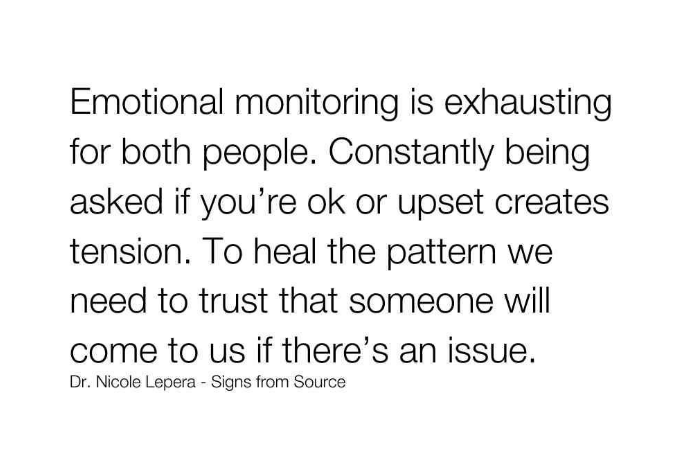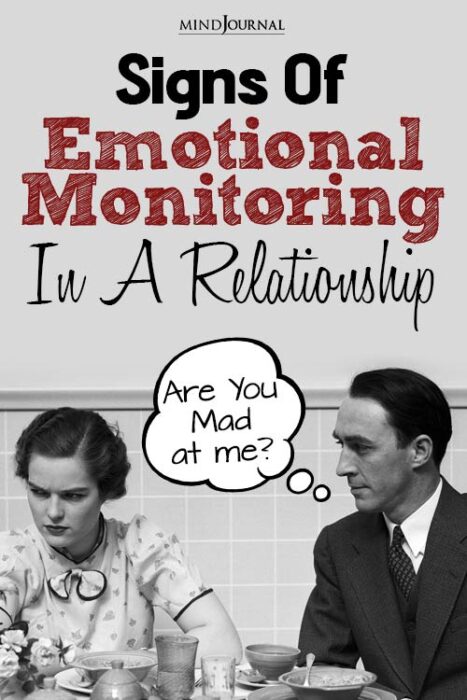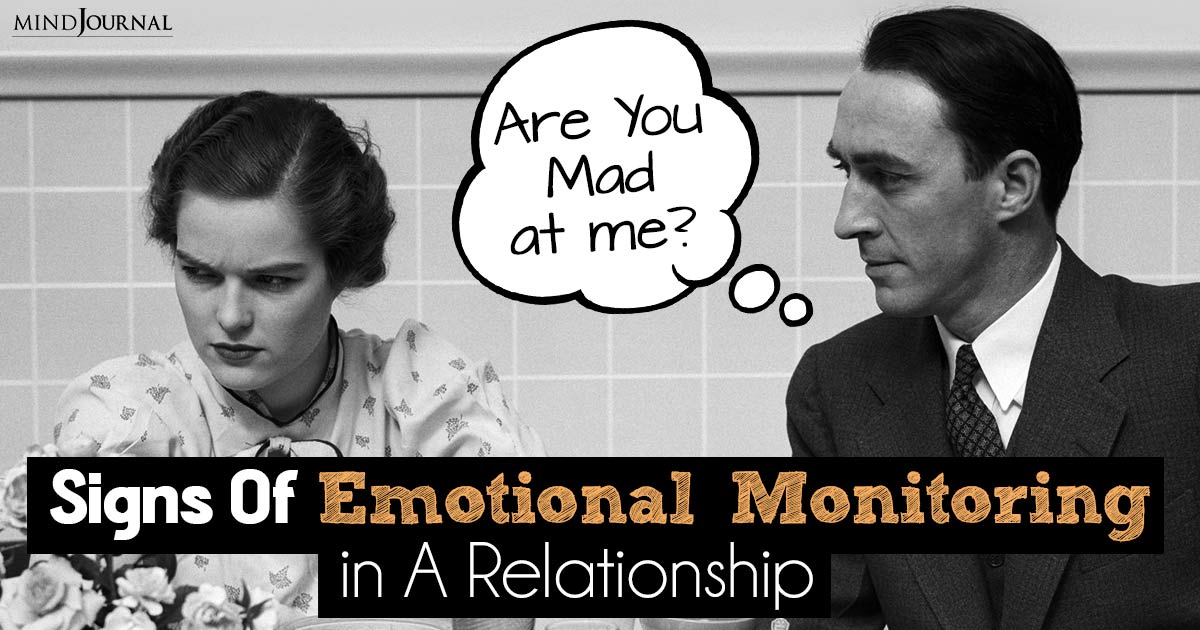Are you frequently asking, “Are you okay?” or “Are you mad at me?” If you find yourself either asking these questions or receiving them, then you may be stuck in a behavior pattern called emotional monitoring.
Emotional monitoring is where one continually scans other people’s emotions in order to regulate their own responses which can lead to emotional burnout and problems with communication.
But it is possible to break this cycle; it starts with knowing what signs look like and deliberately changing our ways when we see them.
What Is Emotional Monitoring In A Relationship?

Emotional monitoring differs from empathy or people-pleasing because it involves an obsession over others’ feelings both before and after interacting with them as well as adjusting personal actions based on perceived cues instead of actual sentiments.
This constant need for external validation coupled with a hyperfocus on another person’s mood can begin during childhood and last throughout adulthood sabotaging various areas of life, especially relationships.
Related: Are Screenshots Ruining Your Dating Experience? Exploring 5 Pros and Cons
Recognizing The Signs Of Emotional Monitoring In A Relationship
Some common indicators that someone has been emotionally monitoring are:
- Excessive concern about what others might think or feel
- Inability to stay present while talking face-to-face
- Reliance on frequent emotional reassurance
- Failure to calm down without help from someone else
- Difficulty expressing oneself genuinely
- Changing how one feels depending on how they think others are feeling
- Putting more importance on other peoples’ emotions than one’s own.
How To Stop Emotional Monitoring?
Getting out of emotional monitoring requires deliberate action towards changing behaviors thoughts patterns so below are some steps we can take in order to do so:
1. Raise Consciousness
For the next few days deliberately watch your habits concerning this matter. Take note of how often you monitor others’ feelings and what effect that has on your interactions with them.
Pay attention whenever phrases like “Are you okay?” escape from your mouth without much thought behind them or when such statements reveal themselves as assumptions about peoples’ attitudes towards yourself.
2. Carry Out Self Examination
People who emotionally monitor spend most of their time looking outside themselves, ignoring inner self-reflection periods.
Allocate a few minutes each day for personal evaluation either through writing down thoughts in a diary or simply being alone with oneself. Redirect attention towards own emotions thereby fostering greater self-awareness.
3. Enhance Emotional Resilience
Rather than rushing to fix someone’s bad mood, practice tolerance and understanding. Provide necessary support where applicable but also allow them room to express their feelings freely while withholding any form of condemnation towards such emotions when they seem irrelevant or unexplainable.
This exercise teaches us that feelings change continuously without requiring intervention at all times.
4. Accept Flaws
We should appreciate that overcoming emotional monitoring is gradual and slip-ups are bound to happen along the way.
Instead of striving for flawlessness, admit whenever one relapses into old behaviors then gently shift focus back on track again. As we traverse this path towards better bonding ships let patience be our companion.
5. Build Trust through Connection
When we permit people space in which they can go through different emotions uninterrupted, it creates closeness among them as well as trust between the parties involved…
Having faith that individuals possess ability to handle personal feelings strengthens bonds while prompting genuineness from both ends.. Letting go of control exposes oneself hence enabling authentic relationships thrive.
We could get stuck in damaging relationship patterns through emotional monitoring that depletes us and hampers communication — yet we need to break out by understanding this cycle and putting effort into it.
We can establish more trustful relations if we learn to see the signs, reflect on our feelings; become tougher at heart and embracing imperfection so others can be honest with us too.
Related: Does Having High Standards Undermine Your Love Life? 4 Ways It Can Go Wrong
When one lets go of trying to make another person feel or do something they don’t want, closeness becomes possible. Although it may require a lot of energy, these profound bonds bring immeasurable rewards.
Realizing the truth about emotional monitoring sets off connections which transform lives forever after.









Leave a Reply
You must be logged in to post a comment.